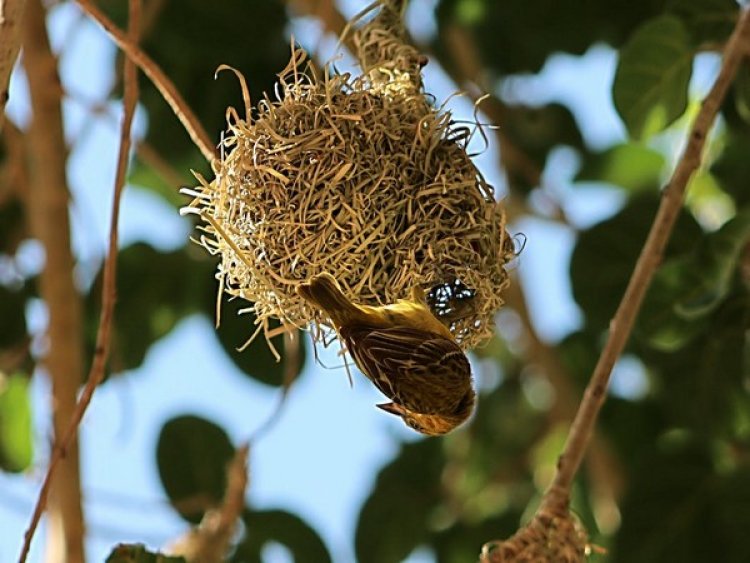Study finds that man-made materials in nests can bring risks for birds

Bangor, UK: Researchers found that 176 bird species employ a range of manmade items in their nests across the world. Birds all around the world use our unused or waste items. In their nests, seabirds in Australia utilise fishing nets, ospreys in North America use baler twine, city birds in South America use cigarette butts, and common blackbirds in Europe gather plastic bags.
This research was published in a special edition of Philosophical Transactions of the Royal Society B titled ‘The Evolutionary Ecology of Nests: A Cross-Taxon Approach.’
According to researchers, this material found in bird nests can be beneficial. Cigarette butts, for example, retain nicotine and other compounds that repel ectoparasites that attach themselves to the skin of nestling birds and suck blood from them. Meanwhile, harder man-made materials may help provide structural support for bird nests, while plastic films may help provide insulation and keep offspring warm. Despite these potential advantages, it is important to remember that anthropogenic material can be harmful to birds.
Mark Mainwaring said, "The special issue highlights that the nests of a wide range of taxa - from birds to mammals to fish to reptiles - allow them to adapt to human-induced pressures. Those pressures range from the inclusion of anthropogenic materials into their nests through to providing parents and offspring with a place to protect themselves from increasingly hot temperatures in a changing climate."
Anthropogenic elements can occasionally be harmful to birds. Baler twine may trap both parents and children fatally. Meanwhile, children occasionally consume manmade material after mistaking it for natural prey. Finally, the addition of brightly coloured manmade objects in nests attracts predators, who subsequently feed on the eggs or nestlings. This implies we must minimise the quantity of plastic and other anthropogenic waste we throw.
The lead author of the study, Zuzanna Jagiello who is based at the Poznan University of Life Sciences in Poland, added, "A wide variety of bird species included anthropogenic materials into their nests. This is worrying because it is becoming increasingly apparent that such materials can harm nestlings and even adult birds". Zuzanna Jagiello also went on to say that "more studies are needed to gain a more complete understanding of how many bird species worldwide include such materials into their nests for us to fully comprehend the extent of the problem."
The second author of the study, Jim Reynolds, a researcher in the Centre for Ornithology at the University of Birmingham in the UK, remarked, "In a rapidly urbanizing world which we share with many different animal taxa, it is not surprising that birds use our discarded materials in their nests. Although much needs to be understood about how plastics, for example, impact birds, it is exciting that birds, through their high mobility and breeding biology, may prove to be potent biomonitors of environmental anthropogenic material pollution."















































